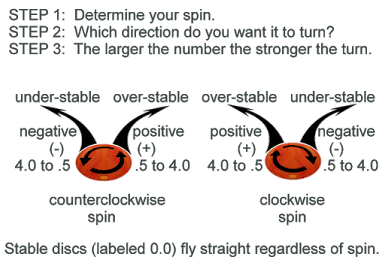When reminiscing about the first time you swam in the ocean, or rode a horse, or got lost, your brain begins the recollection because of a sensory 'anchor point' specific to those past thoughts. It may have been a mental snapshot (waves on a sandy beach), a specific smell (coconut sunscreen oil), an unusual sound (distant seagull cries), or maybe even a uniquely memorable sensation of touch (bare feet on hot sand) or taste (saltwater on the lips). Your mind does this autonomously, and routinely, because the event was accompanied by a sufficiently strong enough emotion — at the time — for your brain to release chemicals into your bloodstream.
Pleasurable events are 'attached' (associated with) different chemicals than those associated with, and caused by, negative events. It's important to note that our consciousness's default mode is to prioritize negative brain chemicals (and those associated events) as more relevant and valuable (easier to recall) than positive chemicals/events (easier to forget).
The reason negative memories have priority is because our survival is our mind's most important task. The adage: 'What doesn't kill you, makes you stronger' exemplifies this — no matter how much enjoyment your brain stored during the hundreds of joyful hours you've spent in the ocean, the few minutes you struggled and almost drowned, when you got swept out to sea by a riptide, is considered an immensely more important memory by your conscious mind.
Similarly, your brain accompanies a different mix of chemicals with a story you were told (or read) about a stranger's or a fictional character's visit to a beach; just as it does when your mind creates a memorable dream about going to a beach.
"I remember my first trip to the beach when I was five. It was at Cape Cod, Massachusetts. A huge grey wood stairway-walkway led us across the dunes, and I ran from where it ended all the way to the surf-line, because the sand burned my feet."
That's not an accurate recollection of those events. Not really.
What actually happened is the five-year-old came home from Cape Cod and told people what happened at the beach that day, which 'locked in' a few memorable moments (among which included: building a sand castle with a plastic yellow pail and blue trowel, floating briefly in the shallows without assistance, and collecting shells — no mention of hot sand). Over the next few weeks/months that five-year-old learned information about that day at the beach from the perspective of family members (both parents constantly recounted to themselves, and others, about how hot the sand was). Years later, the five-year-old/now teenager has lost the memories of sand-digging and shell-collecting (because those events were no longer intentionally recalled by the conscious mind and, subsequently, deemed unimportant) but the memory of running across the sand was reinforced, and sufficiently re-remembered, to make it a strong enough memory that the five-year-old/now adult owns a pair of beach shoes.
Our brains can also construct completely new ideas by imagining the answers to questions (posed by ourselves or others).
Take this as a question: What is the difference between fictional conjecture and theoretical science or philosophy?
Try this as an answer: Currently (as of March 2019) there is no consensus, among all the minds engaged in studying astronomy and astrophysics, as to what causes the forces currently referred to as dark matter and dark energy.
 The two terms are placeholders. It is widely agreed that these two placeholder-terms are required to explain the events we see in the observable universe. Specifically, that there must be much more matter than we can visibly account for (our galaxy's would fly apart if all the visible solar systems were the only things providing gravity) and there must be some unknown force causing every galaxy to move away from each other at an increasing rate (it is increasing too fast to be caused by gravity).
The two terms are placeholders. It is widely agreed that these two placeholder-terms are required to explain the events we see in the observable universe. Specifically, that there must be much more matter than we can visibly account for (our galaxy's would fly apart if all the visible solar systems were the only things providing gravity) and there must be some unknown force causing every galaxy to move away from each other at an increasing rate (it is increasing too fast to be caused by gravity).What if prior to the inflation of the universe (foolishly mislabeled big bang) there was not nothing? What if every atom had been crushed into a singularity by the combined mass of the something that is currently called dark matter? And, that dark matter exerted dark energy in the same manner as real matter exerts gravity? Do not confuse anti-matter in this hypothesis (that's another thing all together). When universe-inflation began about 15 billion years ago, the dark matter fractured and has been coalescing within all the matter ever since. This dark matter lost it's energy (in a radiation-like manner) so it can no longer re-coalesce (every molecule of dark matter lost it's gravity-component). Different from how a single atom of hydrogen has a minuscule amount of gravity (which means real matter possesses a component which always provides it with an attractive-force, currently theorized to be one of the quantum particles) — in the case of dark matter it all lost its attractive force (dark energy) at once. Dark energy (now radiating free of the matter it once was attached to) can't act on matter. But, it can act on gravity. So, large amounts of gravity (galaxy-sized amounts of gravity) are being acted on by the dark energy.
Is this fictional conjecture? Is this theoretical physics? Is this philosophy?
March 2020 addendum (no such thing as dark energy): Recent re-evaluation, by current astrophysicists, on the term dark energy (as a needed placeholder term) has revealed it to - maybe - be a completely unneeded term.
The term dark energy was coined, based on faulty science. Apparently (more science is now needed to re-confirm its lack of existence) "small sample size" is to blame for the decades-long erroneous statement that all galaxies are moving away from each other at an ever increasing rate.
Re-testing/re-measurements on a large scale, revealed that if you examine more than one swath of space (and not just one single minuscule spot) almost all galaxies move at various different rates relative to other galaxies in all directions and speeds. The chaos of things in space move chaotically and with no uniformly increasing speed.
(And, if you look back at just that one minuscule spot from decades ago, those few galaxies do - in fact - still appear to be moving at an increasing rate.) The astrophysicists of 1970 were not lying. They just never asked anyone to check their math. Or to look at another part of space. And nobody took it upon themselves to check their math, or look elsewhere, for 50 years or so.
So there is no dark energy. It was a mistake to think it was ever a thing. And for decades to come, people will still claim it is real because (like every oops-editorial "we made a mistake when we said before that...") it will not get bandied-about as much as the erroneous original claim.
Is this fictional conjecture? Is this theoretical physics? Is this philosophy?
The only thing it is not is religion. A 50-year mistake made by scientists is still science (in fact, it is good science.) Show me a religion that admits its mistakes.
more essays related to memory:








































